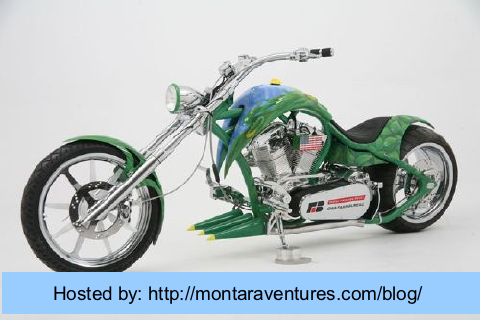Corn Hog
Buy a $10 Ticket to buy this E85 Chopper

The Iowa Farm Bureau and Orange County Choppers have teamed up to build this great looking bike to increase ethanol awareness. It’s a great message, you don’t have to be a tech-weenie to be able to have a cool vehicle that also has a little lighter footprint on the planet. This plus what Tesla is doing on the electric vehicle front should help to start change the perceptions that your only choice is to drive a dorky looking, efficient car.
The drawing is tomorrow, September 7, so there’s still time to buy that ticket (if you can get to Iowa.) An aside: MeV owns an E85 vehicle, we can attest that the fuel works great. As a California company, it is disappointing as there are only 4 gas stations with E85 in the whole state.









The Corn Hog is an excellent name for ethanol fuel. It requirean excess of a gallon of gasoline to produce one gallon of ethanol. Ethanol then reduces the available mileage per gallon of that used gallon of gasoline by 30%. In addition, the corn raised in Central New York state (food) is being purchased by the federal tax money which causes farmers to grow less wheat (food) and soy beans (food) so that the price of wheat, (food), corn(food) and soy beans(food) has increased several hundred per cent in the past year. So in summary, the Corn Hog has removed usable gasoline from the market, increased food prices by several hundred per cent and wasted $.50 per gallon of federal tax money to perform this process. You might want to check out the effect of ethanol on the destruction of the Amazon Rain Forest.
Thanks for the comment Clay. To a certain extent, I agree with your premise that ethanol is not the solution. However, to be fair, there is a 40% energy yield with corn-based ethanol. That’s not sufficient to offset some of the other negative aspects of corn-based feedstock you note.
However, view this as a step along a continuum toward awareness of things other than a petro economy and a step in the right direction. I tend to believe that electricity, not biofuels nor hydrogen will win the transport business in the end. That brings its own unique challenges – what will we do to meet the increased electricity demand? Burn more coal?
Fortunately, there are no shortage of problems and tradeoffs to be made and because of that the renewable sector will thrive for years to come.